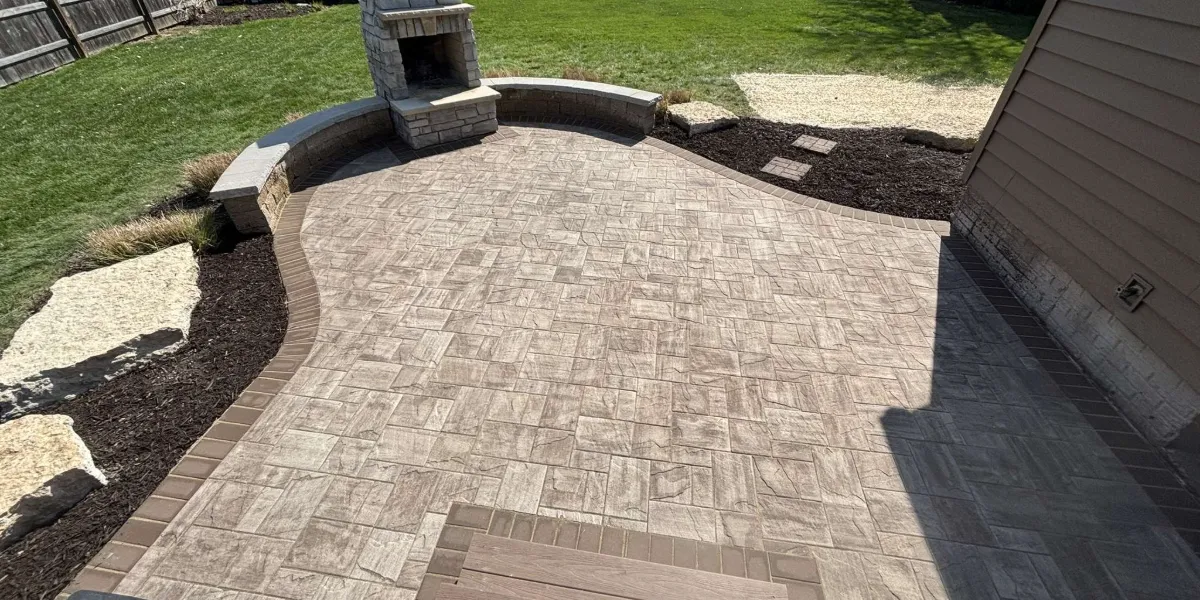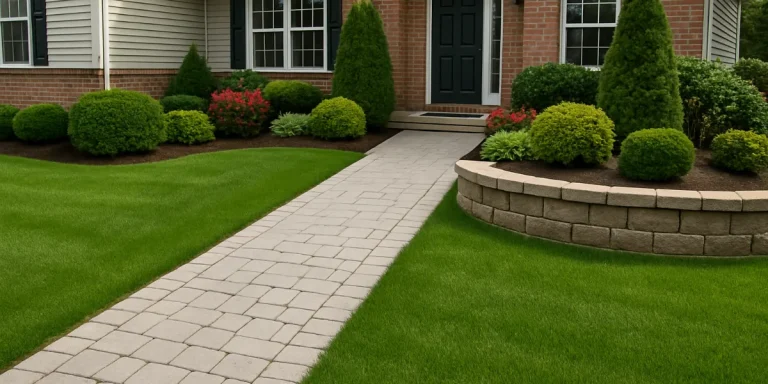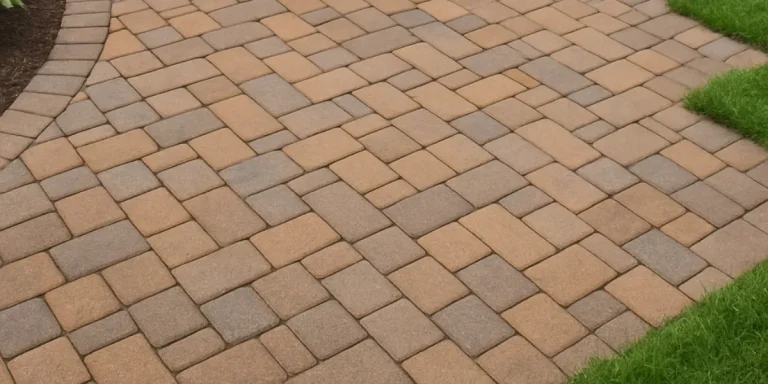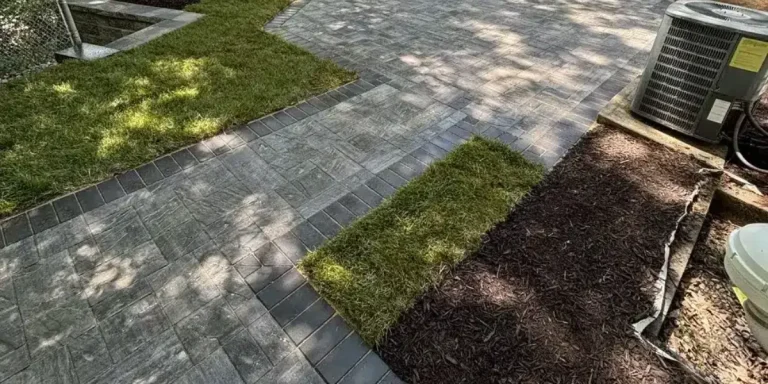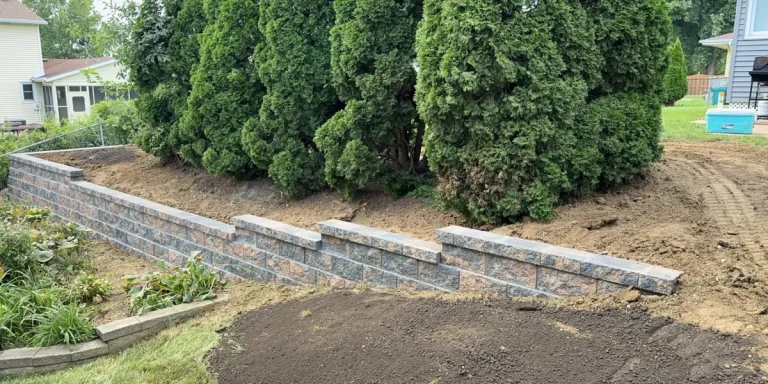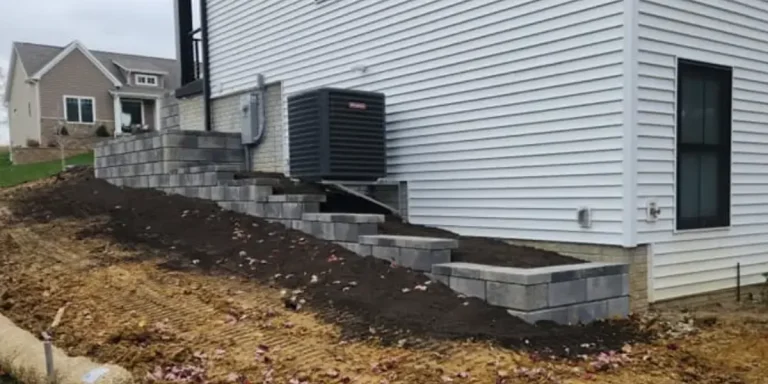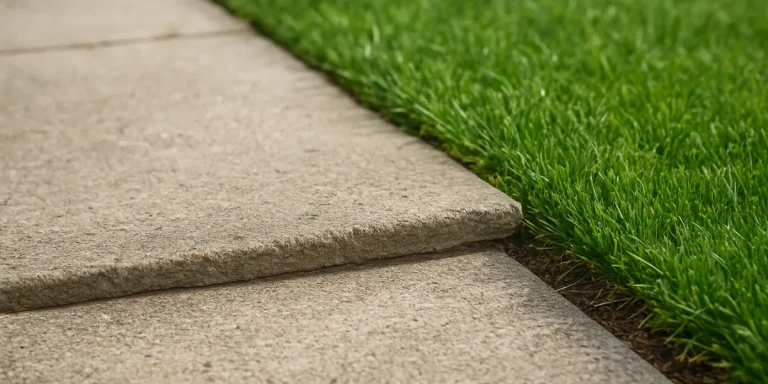Are Interlocking Pavers Better Than Stamped Concrete?
If you're planning to upgrade your patio, walkway, or driveway, one of the biggest decisions you'll face is choosing the right material. Two of the most popular options are interlocking pavers and stamped concrete—both offer unique benefits, but they perform very differently when it comes to appearance, durability, and maintenance.
At Topscape Landscaping & Lawn Care, we’ve helped homeowners across Moline, Rock Island, Bettendorf, and nearby areas make informed decisions based on their property, budget, and goals. In this post, we’ll break down how interlocking pavers compare to stamped concrete—and when one may be a better fit for your project.
Appearance and Design Options
Both interlocking pavers and stamped concrete can dramatically improve the look of your outdoor space. However, they offer very different levels of design flexibility and aesthetic customization. Understanding how each material performs visually—both initially and over time—can help you make the right choice for your home.
Interlocking Pavers
Interlocking pavers are one of the most versatile materials available for patios, walkways, and driveways. Because they are individually manufactured units, they come in a wide array of:
-
- Colors: Choose from earth tones, greys, charcoals, reds, and blended finishes
- Shapes and Sizes: From traditional rectangles to contemporary geometric forms
- Textures: Smooth, tumbled, embossed, or natural stone-like finishes
- Patterns: Laid in herringbone, running bond, basket weave, and countless other configurations
This level of control allows you to create truly custom hardscapes that match your home’s architecture, landscaping features, or personal style. Pavers can also be combined with borders, inlays, or accent bands for additional contrast and visual interest. Over time, the joint lines between pavers contribute to a well-defined, clean look that holds its shape and charm.
Stamped Concrete
Stamped concrete achieves its appearance through a surface imprint applied to freshly poured concrete. While this method can replicate the look of materials like slate, brick, or tile, it does come with limitations:
-
- Pattern Options: You're limited to the stamp molds available, which are typically repeated in large sections
- Color Consistency: Integral color or surface stains can fade or wear unevenly without proper sealing
- Texture and Detail: The surface has a uniform texture and lacks the depth and variation found in real stone or individual pavers
Stamped concrete can look great when freshly installed and well-maintained, but it’s more likely to show wear over time. Cracks and repairs are also harder to disguise in a continuous concrete surface, which can affect the overall appearance.
Final Take: Which Offers Better Visual Appeal?
When it comes to design flexibility and lasting beauty, interlocking pavers offer a clear advantage. Their wide range of styles, patterns, and finishes makes it easy to create a truly customized outdoor space that complements your home.
Unlike stamped concrete—which can fade, crack, or lose detail over time—pavers retain their crisp appearance and are much easier to maintain or repair. In a climate like Moline’s, where seasonal changes can take a toll on outdoor surfaces, this makes a big difference in how your investment holds up.
For homeowners who value creative control and long-term curb appeal, interlocking pavers are the better choice.
Durability and Performance in Midwest Weather
In the Quad Cities region—including Moline, Rock Island, and Bettendorf—landscaping materials face constant pressure from the elements. Frequent freeze-thaw cycles, seasonal rains, and shifting soil conditions can quickly expose weak points in outdoor surfaces. That’s why material performance under real-world conditions should be a top consideration when planning your patio, walkway, or driveway.
Interlocking Pavers
Interlocking pavers are engineered to handle stress individually, which makes them ideal for properties in climates like ours. Unlike a continuous concrete slab, each paver can move slightly with the ground without causing widespread cracking or failure.
Key benefits include:
-
- Flexibility: Each paver can shift slightly with seasonal ground movement, reducing the risk of cracks
- Ease of repair: If a paver becomes stained, chipped, or cracked, it can be replaced individually without tearing out the entire surface
- Drainage performance: The small joints between pavers allow water to filter through or run off more effectively, reducing pooling and ice buildup
- Freeze-thaw resistance: Proper base preparation and edge restraints help maintain surface integrity during extreme temperature swings
This makes pavers a reliable long-term option for walkways, driveways, and patios across areas like Silvis, Milan, and Coal Valley where the weather can change quickly and dramatically.
Stamped Concrete
Stamped concrete is one continuous surface, which means it doesn’t tolerate movement nearly as well. While control joints are added to help reduce cracking, they can disrupt the stamped pattern and aren’t always effective when ground movement is significant.
Limitations include:
-
- Prone to cracking: Soil shifting, frost heave, and heavy vehicle traffic can all cause visible cracks in the slab
- Difficult repairs: Patching concrete often results in color mismatches or visible seams, which can detract from the finished look
- Water-related issues: Because it’s non-permeable, water can pool on the surface unless slopes are perfect—leading to slippery conditions and faster wear
- Ongoing maintenance: Resealing is required every few years to protect against moisture intrusion, fading, and surface wear
In wet, freeze-prone environments like Moline, stamped concrete often requires more upkeep to stay functional and attractive.
Final Take: Built to Handle the Midwest
When it comes to long-term performance in Midwest weather, interlocking pavers consistently outperform stamped concrete. Their ability to flex, drain, and be easily repaired makes them a more durable choice for homeowners who want both beauty and peace of mind—without the hassle of frequent maintenance or costly repairs.
If you're looking for a material that can stand up to Moline’s climate while maintaining its look and function year after year, pavers are the smart investment.
Maintenance Requirements
All outdoor surfaces require some level of maintenance to keep them looking good and performing well over time. However, the frequency, cost, and complexity of that maintenance can vary significantly between interlocking pavers and stamped concrete—especially in a climate like Moline's, where seasonal extremes are common.
Interlocking Pavers
Pavers are known for their low-maintenance design and long-term serviceability. Because they are individual units, maintenance is generally simple, and problems are isolated rather than systemic.
Routine upkeep for pavers includes:
-
- Joint re-sanding: Over time, the polymeric sand between joints may settle or wash out and may need to be reapplied to maintain stability and weed resistance
- Surface cleaning: Pavers can be easily pressure washed to remove dirt, moss, or stains from foot traffic, leaves, or weather
- Resealing (optional): While not required, applying a sealer can enhance color and provide additional protection from moisture and stains
- Spot repairs: If a single paver cracks, stains, or shifts, it can be replaced without affecting the rest of the surface
Because there’s no large slab to worry about, minor issues with pavers are easily managed—making them ideal for busy homeowners who want a durable and attractive surface without the hassle.
Stamped Concrete
Stamped concrete offers a solid surface, but it comes with higher maintenance demands. To preserve its color, texture, and durability, routine care is required—especially as the material weathers over time.
Common maintenance needs include:
-
- Sealing: Stamped concrete should be resealed every 2–3 years to protect it from UV damage, moisture infiltration, and surface wear. Without it, colors fade and the surface becomes more prone to cracking
- Crack repairs: Concrete is vulnerable to cracking due to soil movement, freeze-thaw cycles, or heavy loads. These cracks often require patching, which can be visually obvious—even after repair
- Stain removal: Unlike pavers, which can be swapped out, stains on stamped concrete must be cleaned or treated in place, often with limited success
- Surface wear: Heavy traffic or harsh weather can wear down the surface texture, making patterns less defined over time
Even with proper maintenance, stamped concrete tends to show its age more quickly and visibly than pavers—especially in outdoor environments with high sun exposure, water runoff, or freezing temperatures.
Final Take: Which Material Is Easier to Maintain?
Interlocking pavers offer easier, more affordable, and less invasive maintenance.
They allow for quick spot repairs, require minimal long-term effort, and retain their appearance with basic care. In contrast, stamped concrete demands regular sealing and professional repair work to maintain its look—making it a higher-maintenance option in the long run.
For homeowners in Moline and the surrounding areas who want long-term performance without ongoing upkeep, pavers are the practical choice.
Cost Comparison
Upfront Cost
When comparing initial installation costs, stamped concrete is typically the more budget-friendly option. It requires less labor and fewer materials, as the surface is poured and shaped in one continuous process. For homeowners looking to complete a large area quickly and at a lower initial price point, stamped concrete can be appealing.
However, this lower upfront cost often comes with trade-offs in performance, appearance, and long-term maintenance needs.
Long-Term Value
While interlocking pavers may have a higher initial investment, they generally offer greater long-term value. Here's why:
-
- Lower maintenance costs: Pavers require minimal upkeep and don’t need routine sealing
- Easier repairs: Individual pavers can be replaced without patching or removing large sections
- Longer lifespan: Properly installed pavers can last 30 years or more, even with Moline’s freeze-thaw climate
- Higher curb appeal and resale value: Many homebuyers see pavers as a premium landscape feature
Over time, the cost difference often balances out—and in many cases, pavers prove to be the more cost-effective choice.
What to Expect from Topscape Landscaping
The actual cost of your project will depend on several factors, including:
-
- Project size and complexity
- Existing site conditions (grading, soil type, demolition needs)
- Materials selected (standard pavers vs. premium stamped patterns)
- Additional features such as borders, steps, or drainage systems
At Topscape Landscaping & Lawn Care, we provide clear, upfront pricing with no surprises. Our goal is to recommend the best solution for your budget, property, and long-term goals—whether that’s a cost-conscious stamped concrete patio or a durable, custom-designed paver installation.
Our Recommendation for Moline and the Surrounding Area
For most outdoor surfaces in the Moline region—especially patios, driveways, and walkways exposed to the elements—interlocking pavers provide better performance, flexibility, and appearance. They’re especially ideal for homeowners looking to boost curb appeal, increase property value, and reduce long-term maintenance headaches.
At Topscape Landscaping & Lawn Care, we specialize in paver patio construction and can help you design a space that fits your home, budget, and lifestyle. We also offer complete landscape design, retaining wall construction, drainage solutions, and new lawn installation services to help you create a cohesive, beautiful yard.
Proudly Serving the Quad Cities and Surrounding Areas
We provide paver patio installation and hardscaping services in:
-
- Moline
- Rock Island
- East Moline
- Silvis
- Milan
- Coal Valley
- Davenport
- Bettendorf
- Eldridge
We also consider nearby communities depending on project scope and availability.
Ready to Upgrade Your Patio or Walkway?
Let’s bring your vision to life.
Contact Topscape Landscaping & Lawn Care today to schedule a consultation or request a free estimate. Whether you're comparing materials or ready to break ground, our team is here to help you make the right decision for your property.
We proudly serve homeowners throughout Moline and surrounding Illinois and Iowa communities with expert paver patio construction, hardscaping, drainage solutions, and full-service landscape design.

